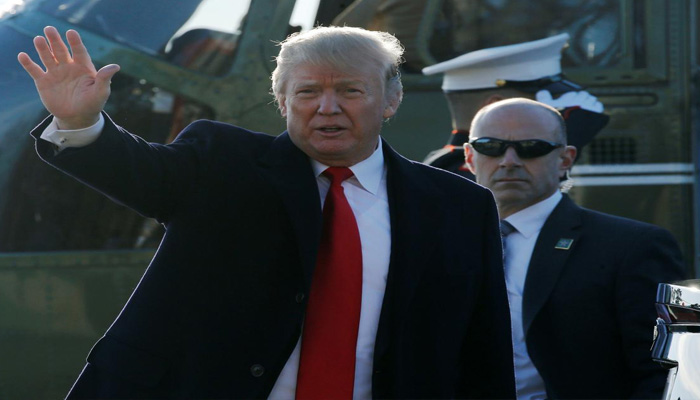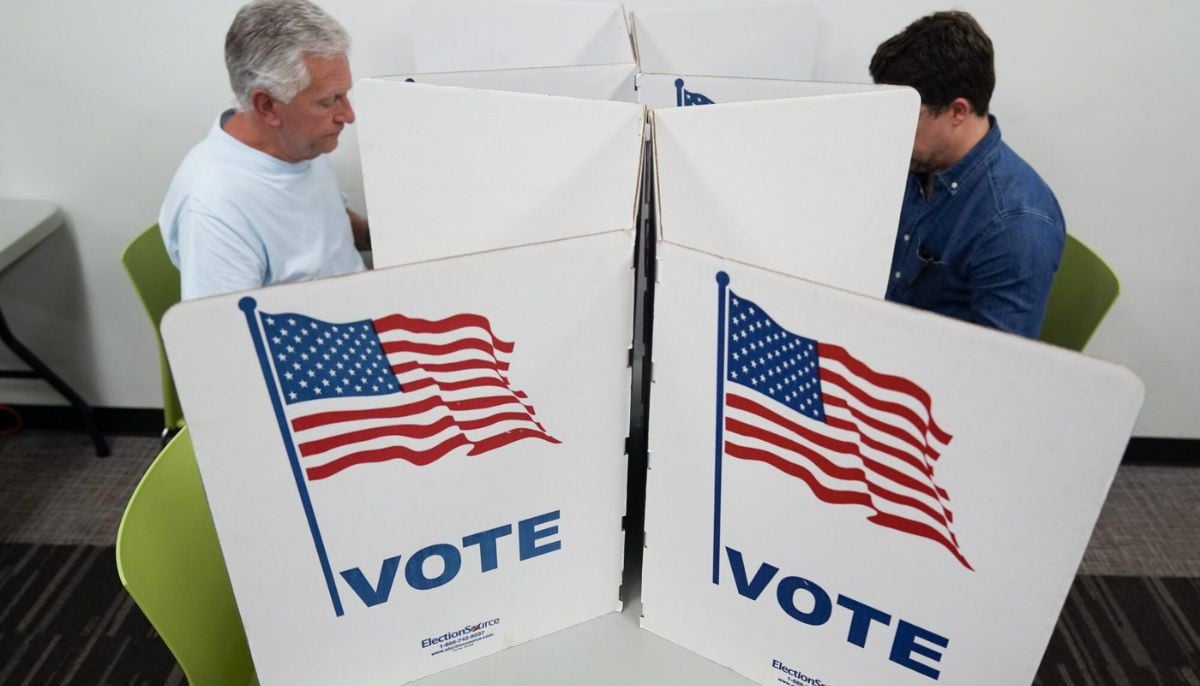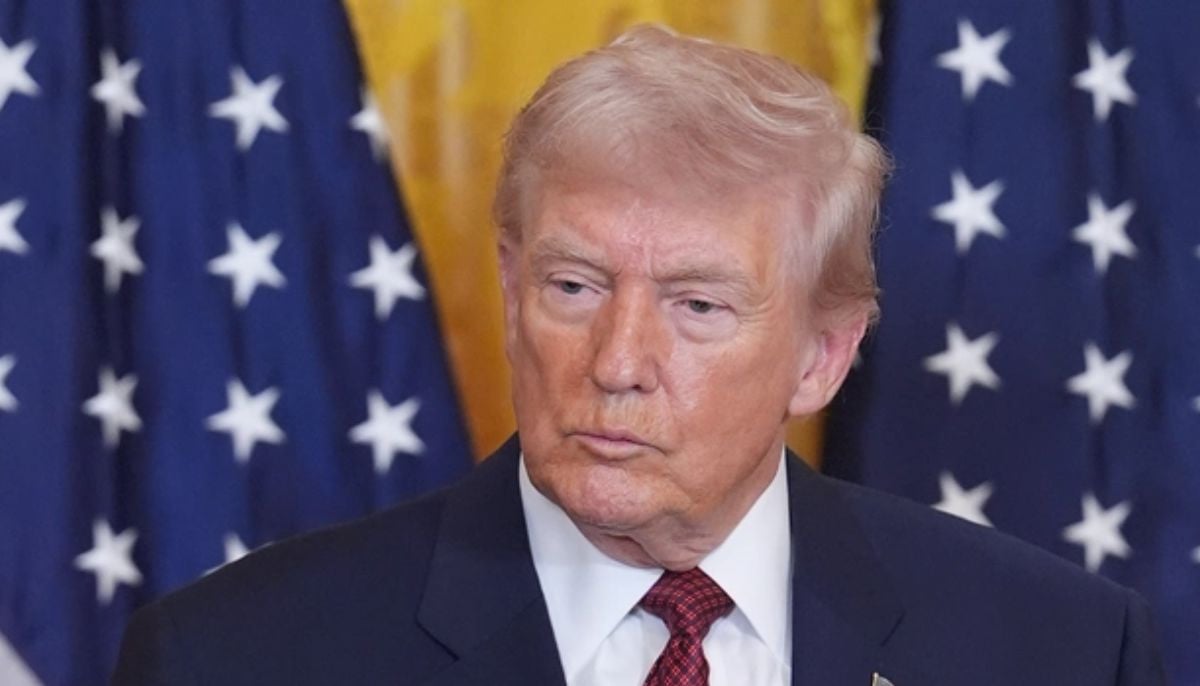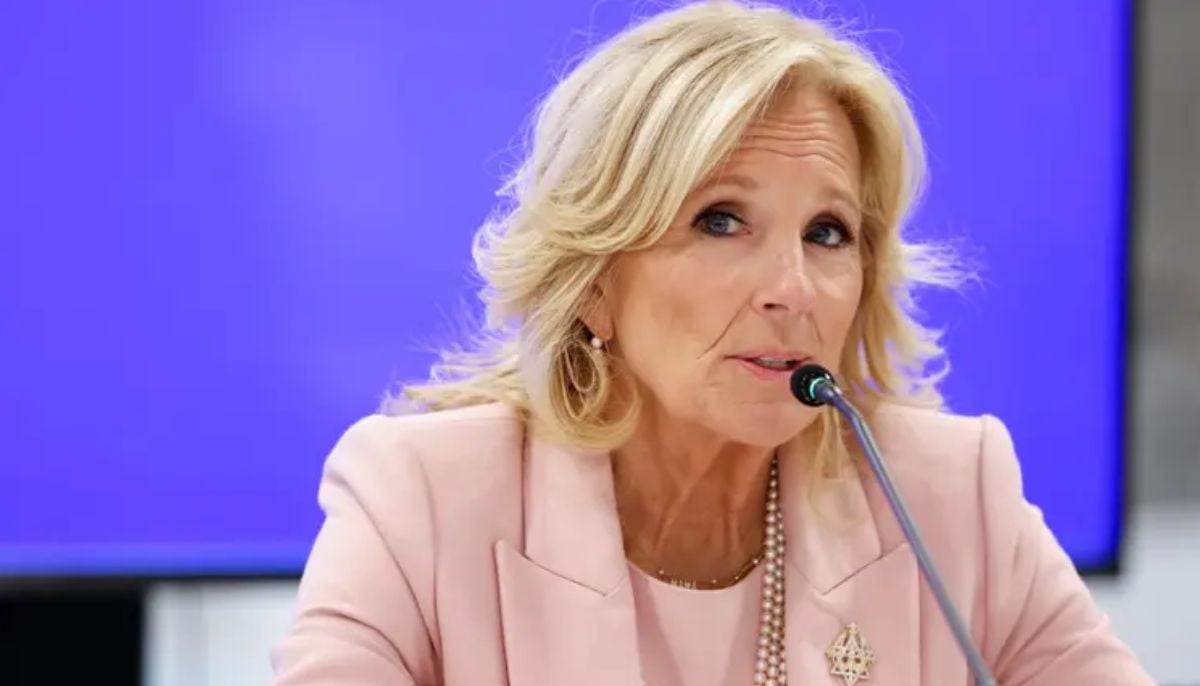Trump proposes US citizenship plan for 1.8 mn undocumented immigrants
US President Donald Trump´s administration on Thursday unveiled a sweeping new immigration plan to Congress that offers 1.8 million young unauthorized immigrants known as "Dreamers" a path to citizenship over 10-12 years.
WASHINGTON: US President Donald Trump´s administration on Thursday unveiled a sweeping new immigration plan to Congress that offers 1.8 million young unauthorized immigrants known as "Dreamers" a path to citizenship over 10-12 years.
Trump´s comprehensive plan -- which will be formally presented next week -- includes eliminating the popular "green card lottery" program and would severely restrict family immigration.
It would also require Congress to budget $25 billion for a "trust fund" for constructing a wall on the US-Mexico border -- a major plank of Trump´s White House campaign.
"The Department of Homeland Security must have the tools to deter illegal immigrants; the ability to remove individuals who illegally enter the United States, and the vital authorities necessary to protect national security," a senior White House official told journalists.
The White House´s offer of a path to citizenship for the Dreamers was much wider than expected. Earlier it had suggested it was only open to granting citizenship to the 690,000 young immigrants registered under the Deferred Action for Childhood Arrivals, or DACA, program.
But in exchange, Trump was asking Congress to make future legal immigration more difficult -- and to shore up the Homeland Security Department´s toolbox and funding to crack down on the overall population of unauthorized immigrants, estimated at some 11 million including Dreamers.
Sharp turn in immigration policy
The plan represents a sharp shift in US immigration policies. Trump promised during his 2016 presidential campaign a tough crackdown on illegal immigration, but has extended this to narrowing the doors for legal immigrations and refugees.
The end of the lottery system -- which was introduced in 1990 to diversify the origins of new immigrants -- was expected and has support from some Democrats. Trump has argued the program has allowed people into the country who have supported Islamic extremists.
"This program is riddled with fraud and abuse and does not serve the national interest," the White House said in a summary Thursday.
Trump however at least momentarily undermined his push against the lottery when, in immigration bill negotiations with lawmakers in early January, he complained about immigrants from what he reportedly dubbed "shithole" nations like Haiti, El Salvador and countries in Africa, sparking widespread outrage.
Trump has also argued for ending "chain" migration, the practice of allowing the extended family members of people who already have US citizenship to immigrate.
Thursday´s proposal said that to "protect the nuclear family," family immigration would be only permitted for spouses and minor children.
Battle in Congress likely
The White House plan immediately provoked the ire of Democrats, who made clear they would likely fight to water down the changes in negotiations in coming weeks.
Pro-immigration groups said it would reduce overall immigration by half.
"$25 billion as ransom for Dreamers with cuts to legal immigration and increases to deportations doesn´t pass the laugh test," said Democratic Representative Luis Gutierrez.
"The White House released a hateful, xenophobic immigration proposal that would slash legal immigration to levels not seen since the racial quotas of the 1920s," said Lorella Praeli, director of immigration policy at the American Civil Liberties Union.
But Republicans voiced strong support.
"I applaud the president for releasing a realistic framework that meets the four immigration pillars agreed by both Republican and Democratic leaders earlier this month," said Republican Senator Thom Tillis.
"The framework proposes solutions supported by both parties and the American people: securing our borders, providing long-term certainty for DACA-eligible youth, and making our immigration system more merit-based," he said.
-
South Korea ex-interior minister jailed for 7 Years in martial law case
-
UK economy shows modest growth of 0.1% amid ongoing budget uncertainty
-
EU leaders divided over ‘Buy European’ push at Belgium summit: How will it shape Europe's volatile economy?
-
US House passes ‘SAVE America Act’: Key benefits, risks & voter impact explained
-
US House passes resolution to rescind Trump’s tariffs on Canada
-
British Soap Awards scrapped again as ITV confirms 2026 hiatus
-
Climate nearing dangerous tipping points, study shows
-
Jill Biden’s former husband charged with wife’s murder












